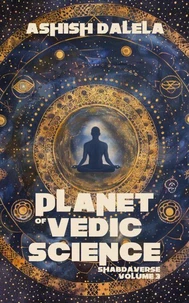Questions about the nature of time have always been an important part of physics and philosophy, but they have never been resolved satisfactorily. This book discusses eight such questions:. Does Time Pass?. How Does Time Pass?. Do the Past and the Future Change the Present?. Does Time Pass Uniformly?. Is Time Absolute or Relative?. Is Time Discrete or Continuous?. Is Time Reversible or Irreversible?. Is the Universe Eternal or Cyclical?These problems span classical mechanics, thermodynamics, atomic theory, relativity, and geometry, but the fundamental issues of the past and the future influencing the present are present in experience. To address the paradoxes of objectivity and subjectivity, we split causality into three questions-what, how, and why-and attribute them to time, matter, and observers.
This leads us to a hierarchical, closed, and cyclical view of space and time. Causality is not just in matter; it is also in time and in observers; but the three kinds of causalities are different as answers to different questions. A tripartite causal model overturns the assumptions about space, time, causation, and natural laws in modern science; but this shift is imperative to address all the questions of time satisfactorily.
Questions about the nature of time have always been an important part of physics and philosophy, but they have never been resolved satisfactorily. This book discusses eight such questions:. Does Time Pass?. How Does Time Pass?. Do the Past and the Future Change the Present?. Does Time Pass Uniformly?. Is Time Absolute or Relative?. Is Time Discrete or Continuous?. Is Time Reversible or Irreversible?. Is the Universe Eternal or Cyclical?These problems span classical mechanics, thermodynamics, atomic theory, relativity, and geometry, but the fundamental issues of the past and the future influencing the present are present in experience. To address the paradoxes of objectivity and subjectivity, we split causality into three questions-what, how, and why-and attribute them to time, matter, and observers.
This leads us to a hierarchical, closed, and cyclical view of space and time. Causality is not just in matter; it is also in time and in observers; but the three kinds of causalities are different as answers to different questions. A tripartite causal model overturns the assumptions about space, time, causation, and natural laws in modern science; but this shift is imperative to address all the questions of time satisfactorily.

 , qui est-ce ?
, qui est-ce ?